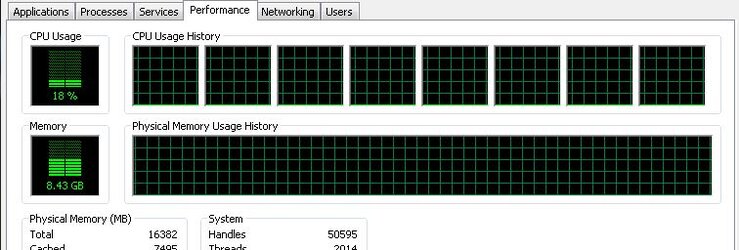- Joined
- Nov 3, 2008
Of course! Yes!
Is it possible that having an unknown CPUID simply means its not optimized for a CPU it doesn't recognize so it defaults or uses the best instruction sets for compatibility instead of performance with proper instruction sets?
BINGO. That is what I was getting at from the get go.
Now if I tell a program that is is working with one CPU instead of the other and I am using the same CPU for all it does make a difference as it pertains to registers and system calls does it not?
Perhaps I am missing something here but to tell a program that an Intel is and AMD and an AMD is an Intel is not a legitimate test because they are different. Registers are not the same and how the program approaches functions would differ would they not? I see what you are doing but I just do not see it working out the way you plan.
And let us not forget the AVX instructions in which AMD FX cpus have tested slower on. The fact is Intel made the compiler for Intel chips. So unless your chip is exactly the same as an Intel chip you will not bench the same as in intel chip. As far as I know the clones stopped with i486.
I think the thing to do if you really want to see what is going on is get benchmarks from the days when AMD was ruling the roost. If the Intel's come out with a lead that matches modern testing software percentages then the testing being done here is just an exercise and nothing more.
You know I actually went through all of this in a GD thread a few years back. Intel compilers are for Intel processors. It is like saying the PhysX should run on AMD cards. Nobody is forcing software vendors to use the Intel Compiler.
I think this is it.
EDIT:
Drive rapid development and winning performance with these suites of compilers and performance libraries
Intel® Professional Edition Compilers include advanced optimization features, multithreading capabilities, and support for Intel® processors and compatible processors. They also provide highly optimized performance libraries for creating multithreaded applications.
http://www.google.com/search?client...nced+optimization+features,&ie=UTF-8&oe=UTF-8 All about Intel compilers here.
IMHO that little string makes all the difference in the world. CPUID. How do I send these commands. If Genuine Intel then Optimized if not then generic because I am not going to engineer my software for everyone else's CPU if they cant get it right.
Just my 2 cents.





 Wow. I would not have thought of that. Wish I lived closer and we could double review things. that would be AWESOME. If you ever start a review site I hope I am included
Wow. I would not have thought of that. Wish I lived closer and we could double review things. that would be AWESOME. If you ever start a review site I hope I am included